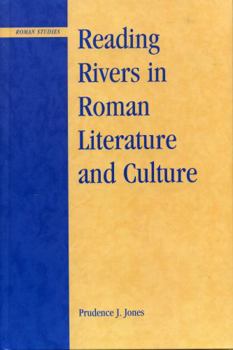Reading Rivers in Roman Literature and Culture
Select Format
Select Condition 
Book Overview
This study examines rivers as a literary phenomenon, particularly in the poetry of Vergil. It first considers the Greco-Roman understanding of the river in its primary symbolic roles, cosmological, ritual and ethnographical, and then analyzes the river as a literary device, arguing that descriptions of rivers in Roman poetry are, in many cases, a form of authorial comment on the progress or structure of a narrative.
Format:Hardcover
Language:English
ISBN:0739111086
ISBN13:9780739111086
Release Date:September 2005
Publisher:Globe Pequot Publishing Group Inc/Bloomsbury
Length:142 Pages
Weight:0.77 lbs.
Dimensions:0.7" x 6.3" x 9.1"
Customer Reviews
0 rating





